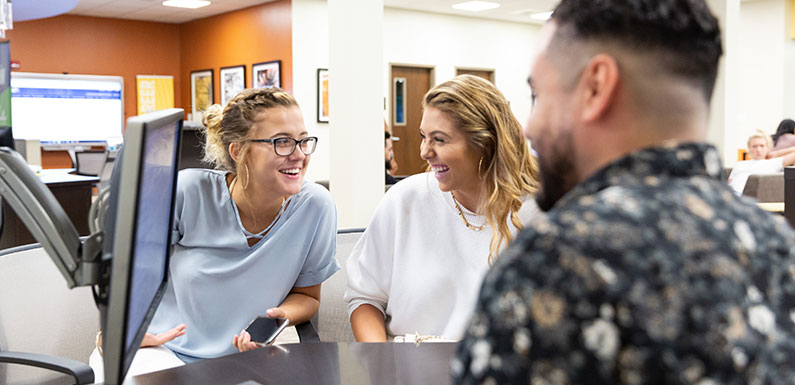Use your previous knowledge to earn college credits
Through the Experiential Learning Program (ELP) you can earn college credits based on the knowledge you have acquired through life experiences. The program is designed to help you demonstrate knowledge as it relates to a specific college-level course. There is no application fee for SPC students and a minimal fee for credit evaluations.
Before completing an ELP application, all official transcripts from other institutions must be evaluated and posted on your SPC student records. You cannot be currently enrolled in any course that you intend to earn credit for.
ELP credit does not apply towards any residency requirements of the degree. You should review your graduation requirements with your academic advisor prior to applying for ELP.
NOTE: Applications are not processed during the first two weeks or last two weeks of any term or during the college's winter break.
STEPS IN THE EXPERIENTIAL LEARNING PROGRAM
- Identify specific courses you would like to earn credit for. (NOTE: Some HEC courses are not eligible for ELP credit.) Review your degree progress report in MySPC and/or contact an academic advisor to clarify your program requirements.
- Complete the ELP application.
- A designated SPC instructor will interview you to determine if an assessment will be performed.
- Submit any required documentation for the assessment and pay the ELP fee of $25 per credit hour.
- The instructor evaluates the materials and determines if credit will be awarded.
- A notification is sent to you of the assessment outcome.
Frequently Asked Questions
HOW MANY CREDITS CAN I OBTAIN THROUGH THE EXPERIENTIAL LEARNING PROGRAM?
You may obtain up to 45 credits through all accelerated mechanisms (e.g. ELP, CLEP, IB, AP, etc.). The college limits the number of credits that may be earned through ELP for certain A.S. degrees and certificate programs.
ARE THERE CLASSES I CANNOT RECEIVE ELP CREDIT FOR?
Yes.
These health sciences classes are not eligible for ELP credit.
These College of Education classes are not eligible for ELP credit.
Courses with NUR (Nursing) and PLA (Paralegal/Legal Assistant/Legal Administration) prefixes cannot be awarded credit through ELP.
WHAT SHOULD BE INCLUDED IN MY ELP PORTFOLIO?
If the ELP faculty assessor determines a portfolio will be the method used for assessment, review the portfolio manual for specific guidelines on preparing the portfolio.
WHEN SHOULD I TURN IN MY DOCUMENTATION FOR MY ELP ASSESSMENT?
All ELP materials must be submitted by the deadline established by your designated instructor.
WHO WILL DO THE ASSESSMENT OF MY LEARNING FOR ELP?
A credentialed faculty member who has experience teaching the course will serve as the ELP assessor.
DO I RECEIVE A GRADE FOR MY ELP COURSES
If successful, a grade of "P" is recorded along with the course credit. This does not affect your Grade Point Average (GPA).
IF I AM NOT SUCCESSFUL WITH MY ELP, WILL I RECEIVE AN F ON MY TRANSCRIPT?
No, course credits earned through ELP will only appear on your transcript if your assessment result is successful. A grade of "P" will be assigned to such credits, which does not impact your grade point average (GPA).
I'M PLANNING TO GRADUATE AT THE END OF THIS SESSION. CAN I STILL RECEIVE ELP FOR A CLASS?
We recommend that you do not attempt to earn credits through ELP during the session you plan to graduate. Because of the number of steps involved, or if your documentation is insufficient to warrant credit, we cannot guarantee that your documentation will be assessed and credits posted in time for graduation.
IS ELP THE SAME AS CLEP?
No, the College Level Examination Program (CLEP) provides students the opportunity to receive college credit for specific courses by earning qualified scores on standardized exams. The Experiential Learning Program provides students a way to earn college credits based on knowledge acquired through life experiences.

